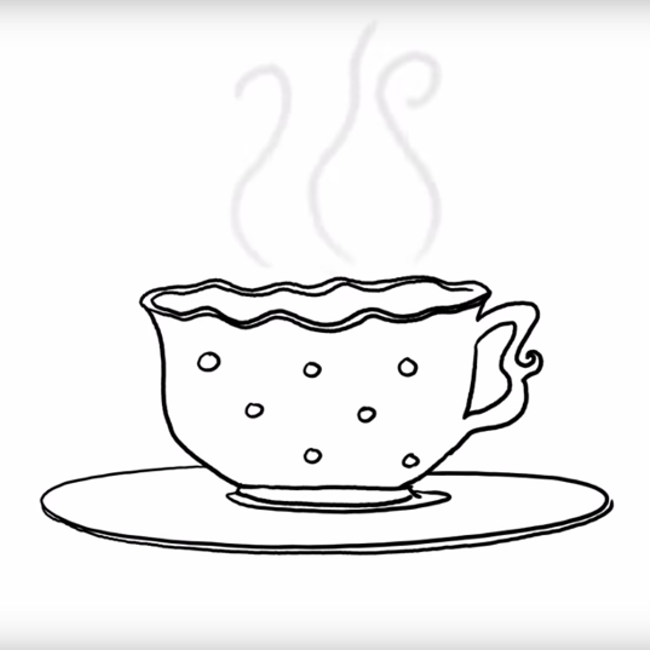
Equally Safe UWS
At UWS we are committed to equality and diversity in all we do. In line with this we are committed to playing our part in implementing the Equally Safe in Higher Education project. This project aims to eradicate gender based violence in education and aligns to The Scottish Government's National Equally Safe Strategy, the vision of which is:
A strong and flourishing Scotland where all individuals are equally safe and respected, and where women and girls live free from all forms of violence and abuse – and the attitudes that help perpetuate it
At UWS we want to encourage a culture which is respectful, promotes equality and does not tolerate sexual violence or related misconduct. Our disciplinary procedures provide the means required to take appropriate action where unacceptable behaviour takes place.
It is important that all members of the UWS community have a clear understanding of what is meant by sexual consent.
Sexual Assault and Consent
This section provides some key information in relation to sexual consent and sexual assault.
WHAT DOES SEXUAL CONSENT MEAN?
This section provides some key information in relation to sexual consent and provides you with a few thoughts on what consent can mean and look like. We will also look at what constitutes sexual violence.
Consent
Sexual consent refers to someone willingly agreeing to have sex or engage in a sexual activity. To give consent, the person must be able to make their own decisions. Someone who is incapacitated through alcohol or drugs, or who is asleep or unconscious, cannot give consent to sexual activity.
Consent to engage in one form of sexual activity does not mean that a person has given consent to other forms of sexual activity e.g., kissing doesn’t mean you’ve agreed to anything else. Consent can be withdrawn at any time and where someone has consented to sexual activity once this does not mean that he or she has consented to this activity in the future.
Making sure you have consent before having any kind of sexual contact with another person is very important as sexual activity without consent constitutes sexual violence.
Find out more and watch the videos on the right of this section.
What is sexual violence?
Sexual violence is any unwanted sexual act or activity. There are many different kinds of sexual violence that exist on a continuum including but not limited to rape, sexual assault, child sexual abuse and sexual harassment. Sexual violence can be psychological and/or physical. Sexual violence in different forms has been recognised to be predominantly committed by men against women. This finds recognition in the term ‘gender-based violence’.
What does Gender-based violence mean?
The Scottish Government defines gender-based violence as a function of gender inequality, and an abuse of male power and privilege. It takes the form of actions that result in physical, sexual and psychological harm or suffering to women and children, or affront to their human dignity, including threats of such acts, coercion or arbitrary deprivation of liberty, whether occurring in public or private life. (Scottish Government 2016a:13)
While it is acknowledged that GBV mostly affects women and that predominantly men are the main perpetrators, it may impact individuals of any age, gender, sexual orientation, faith or ethnicity. GBV cuts across race, class, caste, region and religion.
(ESHE toolkit, 2021)
WHAT IS THE LAW AROUND CONSENT AND SEXUAL VIOLENCE?
A person consents to sexual activity if he or she agrees by choice, and has the freedom and capacity to make that choice.
Sexual Offences (Scotland) Act 2009
In Scotland the act of giving consent is known as 'free agreement' under the Sexual Offences (Scotland) Act 2009. The law recognises that a person might not have sufficient capacity because of their age or because of a mental disorder. It also recognises that the amount someone has had to drink or the effect of drugs they have can also affect their ability to consent.
Under the same Act:
- A person commits rape if he intentionally penetrates the vagina, anus or mouth of another person with their penis without consent (Section 1).
- A person commits sexual assault if he or she intentionally touches another person, the touching is sexual and the person does not consent. There are various different types of sexual assault, and these are explained clearly in Section 2 and Section 3 of the Act.
- A person commits sexual coercion if he or she forces another person to participate in a sexual activity without his or her consent (Section 4).
Some other relevant definitions include:
Sexual harassment:
A person commits sexual harassment when they behaves in a way which makes you feel distressed, intimidated or offended and the behaviour is of a sexual nature. Sexual harassment is a form of discrimination under the Equality Act 2010. Citizens Advice Bureau
Revenge Porn:
Revenge porn is a crime and constitutes the sharing of private sexual materials with intent to cause distress.
Sexual Offences Act 2003
In English law consent exists where a person agrees by choice, and has the freedom and capacity to make that choice as defined in the Sexual Offences Act 2003.
Under the same act:
What is the age of consent?
For both men and women, the age of consent to any form of sexual activity is 16.
There are specific laws in place to protect children under the age of 13 who cannot legally give their consent to any kind of sexual activity.
A person under the age of 18 cannot consent to sex if it is with a person who has a duty of care or is in a position of authority or trust, such as a teacher, doctor or lecturer.
If you repeatedly ask for consent and are refused, this can count as sexual harassment.
More Information
What is the age of consent?
For both men and women, the age of consent to any form of sexual activity is 16.
There are specific laws in place to protect children under the age of 13 who cannot legally give their consent to any kind of sexual activity.
A person under the age of 18 cannot consent to sex if it is with a person who has a duty of care or is in a position of authority or trust, such as a teacher, doctor or lecturer.
If you repeatedly ask for consent and are refused, this can count as sexual harassment.
How to Report Gender Based & Sexual Violence and Where to Get Help
At UWS we take gender based violence seriously and we want to ensure we provide a consistent, caring, and timely response when any member of our University community is affected by such violence.
Should you wish to speak to someone who can advise what support services are available at UWS a safe place to contact is the Hub and the student links on your campus.
Our staff will deal with your enquiry sensitively and they can also advise you of specialist support services available externally. Information will be treated as confidential, unless there is a serious risk of harm to yourself or others.
Please contact the HUB by emailing hub@uws.ac.uk, in person or by phoning 0141 848 3800 or you can read more information below about counselling and specialist services.
Information will be treated as confidential, unless there is a serious risk of harm to yourself or others.
Where to get help internally? (UWS and SAUWS)
IN THE UNIVERSITY
The university offers a wide range of different services that might be relevant if you have been affected by sexual violence.
This short video outlines a few of the support mechanisms available at the University and Students’ Union.
The University recognises that experiences of sexual violence can affect many aspects of your personal and academic life. You can access all relevant Student Support and Wellbeing Services via contacting the HUB or following this link.
The counselling service at UWS provides free confidential support to all students. All of our counsellors are practised and skilled in providing support, and where relevant can refer you on to specialist support services.
To arrange to see a counsellor go to the Hub on your campus, phone on 0141 848 3800 or email hub@uws.ac.uk
Any student experiencing financial hardship as part of their experience of GBV can contact the Funding and Advice Team and can find out more online here.
THE STUDENT UNION (SAUWS)
Your Student Union can also provide support or refer you to a specialist.
Rape Crisis Scotland Gender-Based Violence Module
Free E-Learning Module for ALL UWS Students on Gender-Based Violence.
All students can access this introductory course on Gender-Based Violence by Rape Crisis Scotland. Rape Crisis believe students have the right to feel safe and supported at college and university, and that there's a role for everyone in making this a reality. This course will give you an overview about what gender-based violence is, how it can impact people who have experienced it, and what you can do to help. It will take around 40 minutes to complete.”
Access the course here: Staff Development | openUWS
Resources for Minority Survivors of Gender-Based Violence
|
Name of Organisation |
Target Group/Type of support |
Contact Details |
|
Glasgow and Clyde Rape Crisis (Ruby Project)
|
BAME women, support worker assigned |
Referral Form: Support for Women and Girls | Glasgow and Clyde Rape Crisis (glasgowclyderapecrisis.org.uk)
|
|
Scotland’s Domestic Abuse and Forced Marriage Helpline
|
BAME women, honour-based violence |
0800 027 1234 (24/7)
|
|
Scottish Women’s Rights Centre
|
Legal support (forced marriage protection order, free legal advice, advocacy support) |
08088 010 789 (Mon 10AM-12:3-PM, Tues 12PM-3PM, Wed 10AM-1PM)
|
|
NAPAC (The National Association for People Abused in Childhood)
|
Adverse childhood experience (ACE) |
0808 801 0331 (Mon-Thurs 10AM-9PM, Fri 10AM-6PM)
NAPAC – Supporting Recovery From Childhood Abuse
|
|
|
LGBT Helpline Scotland A national helpline providing information and emotional support to LGBT people, their families, friends and supporters. Provides support to LGBT people who have experienced domestic abuse. |
0300 123 2523 (Tue and Wed 12-9pm and Thurs and Sun 1-6pm)
LGBT Helpline Scotland (lgbthealth.org.uk)
|
|
AMINA (The Muslim Women’s Resource Centre)
|
BAME, financial wellbeing, VAWG |
0808 801 0301 (Mon - Fri, 10am - 4pm). Support is available in English, Urdu, Arabic, Bangla and Swahili
|
|
|
Men, confidential helpline for male victims and families/friends of domestic abuse and domestic violence |
01823 334244
|
|
Helpline for male victims of domestic abuse |
0808 8010327 (Mon – Fri 10am – 8pm)
|
|
|
FearFree works with survivors of domestic abuse over 16 years old who are men or part of the LGBT+ community. It covers Aberdeen, Aberdeenshire, East Lothian, Edinburgh, Glasgow, Midlothian and West Lothian. Anyone can make a referral online or call for information. |
0131 624 7270 |
More information here for staff and students - https://reportandsupport.uws.ac.uk/support/what-support-is-available-if-ive-experienced-gender-based-violence
